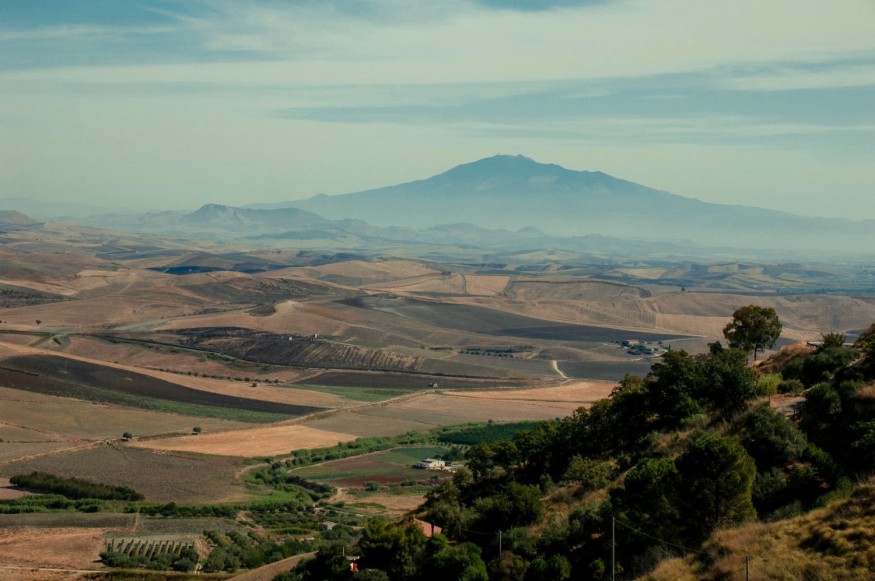
Ahead of the August Ferragosto holiday in Italy, flights to Catania in eastern Sicily were either delayed or cancelled due to the volcanic activity of Mount Etna.
On Monday, the airport advised its passengers to contact their airlines for the schedule of the flying service.
"Due to Etna's eruptive activity and fallout of volcanic ash, flight operations are suspended until 08:00 pm," the airport posted on social media platform X.
🔴 Due to Etna eruption, and fallout of volcanic ash, #CTAairport is closed until 6 a.m. on Tuesday, August 15.
— Aeroporto di Catania (@CTAairport) August 14, 2023
Please contact the airline for information about your flight
Affected flights
The departures and arrivals boards at Catania airport reveal that nearly 95% of Monday's flights have been canceled.
According to aviation data analysts Cirium, Catania airport was scheduled to accommodate 235 planes. However, it was closed after an aircraft from Casablanca arrived at 2.38 a.m. local time on Monday.
However, a few flights continue to arrive or are diverted to other airports in Sicily.
The airport is about 50 kilometers south of Etna.
Ryanair issued a statement on August 14 alerting travelers to a travel interruption at Catania airport.
Flights from Bristol, Edinburgh, and Gatwick to Catania have been canceled by EasyJet.
Some flights scheduled to arrive in Catania have been rerouted to other Sicilian airports.
These include Palermo, the island's busiest airport, which is about a 4- to 5-hour drive from Catania, and Trapani, which is about a 4-hour drive from Catania.
Some EasyJet aircraft were redirected to Comiso, a 2-hour drive from Catania.
According to European air passengers' rights rule, travelers whose flights are significantly delayed or cancelled are entitled to accommodation and food, as necessary, as well as transportation to their destination as soon as feasible.
Volcanic activity
The 3,330-meter-high (10,925-foot) volcano erupted at dawn last Sunday, spewing lava and ash high above the Mediterranean island. The lava flow had lessened by the time daybreak arrived, but ash was still spewing from one of the craters.
According to Italian authorities, the volcano has entered a "pre-alert" phase, raising the warning level from F0 to F1.
According to the Italian National Institute of Geophysics and Volcanology's Etna observatory, the volcano is "producing a fallout of ash in the southern sector of the volcano and beyond."
Mount Etna is continental Europe's highest active volcano. It has a long eruptive history that dates back over 500,000 years, but only in the last hundred thousand years has the volcano taken on the conical shape that it has now.
Because numerous streets were covered with ash, Catania Mayor Enrico Trantino prohibited motorbikes and bicycles from the city for the next 48 hours and ordered cars to go no faster than 30 kph (19 mph) owing to the slick circumstances.
The latest cancellations at Catania airport, which receives more passengers than the island's capital, Palermo, come less than a month after a fire at a terminal building caused weeks of problems for travelers.
Comiso airport, around 150 kilometers from Mount Etna, is also hit by the eruption, with planes being delayed.
Air traffic traveling to the island of Malta is also being rerouted to avoid the ash cloud that has swept across Sicily from the eruption.
Related Video:
© 2025 NatureWorldNews.com All rights reserved. Do not reproduce without permission.





